Senate votes to proceed with Trump impeachment trial
Six Republicans break with party to vote with Democrats who argued that a former president isn’t exempt from Senate trial.
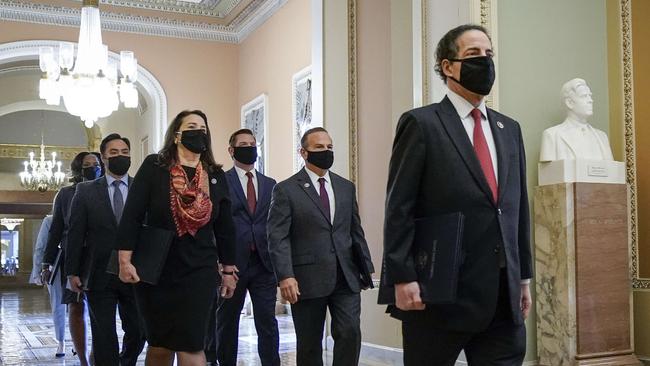
The US Senate voted on Tuesday (Wednesday AEDT) to proceed with the second impeachment trial of Donald Trump, after an afternoon of arguments on whether it was constitutional to try a former president.
Six Republican senators joined all Democrats in asserting the Senate’s jurisdiction even though Mr Trump, impeached by the House last month in the wake of the January 6 Capitol riot, is no longer in office. The 56-44 vote sets the stage for several days of presentations from both sides on the facts of the case.
Sixty-seven votes will be required to convict Mr Trump, meaning at least 17 Republicans would need to join all 50 Democrats. Only a handful of Republicans have indicated they would vote guilty.
A spokesman for Mr Trump didn’t respond to a request for comment.
The vote came after an afternoon of arguments in which Democrats said the trial was on solid legal footing and that the constitution didn’t include a “January exception” that would allow presidents to go unpunished for improper actions in the final weeks of their tenure. Mr Trump’s lawyers countered that the Senate can’t try Mr Trump because he is now a private citizen and that the effort was politically motivated.
The House voted to impeach Mr Trump last month, alleging he incited the mob to insurrection as part of a last-gasp effort to overturn President Joe Biden’s election victory. The article of impeachment points to a speech Mr Trump gave at a rally preceding the riot in which he urged supporters to “fight” and march to the Capitol. Mr Trump’s team has said he was exercising his free-speech rights to challenge the integrity of the election.
Democrat senator Patrick Leahy, acting as presiding officer, gavelled the Senate into session shortly after 1pm, kicking off the second trial of Mr Trump in a little more than a year. The Senate then voted 89-11 on a resolution setting out the rules of the trial, which gave each side two hours to debate the constitutionality of the case.
“Our case is based on cold hard facts,” said Representative Jamie Raskin, the lead impeachment manager, before playing a 13-minute video of Mr Trump encouraging supporters to march to the Capitol and of the subsequent violence on January 6 that left five people dead. “That’s a high crime and misdemeanour. If that’s not an impeachable offence, then there is no such thing.”
Almost all 100 senators, most of them masked because of COVID-19, sat in their seats during the video, silently watching and listening as rioters on the screens rammed doors and attacked police, the same day lawmakers were gathered in the Capitol to certify Mr Biden’s Electoral College win.
“This cannot be the future of America,” Mr Raskin said. “We cannot have presidents do this because they refuse to accept the will of the people.”
In their arguments, Mr Trump’s lawyers — Bruce L. Castor Jr. and David Schoen — acknowledged the horror of January 6, but said the trial was unconstitutionally targeting Mr Trump.
“Presidents are impeachable, presidents are removable,” said Mr Schoen. “Former presidents are not because they cannot be removed.”
The House impeached Mr Trump on January 13, with a week left in his term. Then-majority leader Mitch McConnell declined to convene the Senate early for an impeachment trial, keeping the Senate out of session until it returned from recess a day before Mr Biden took office.
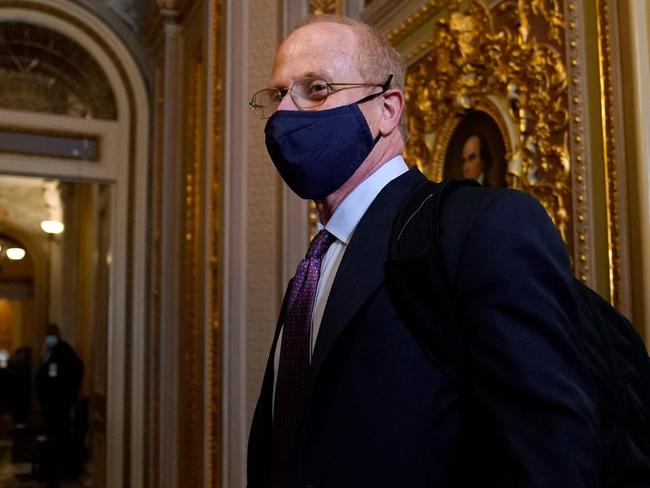
Mr Trump’s lawyers also cast doubt on the Democrats’ motives for calling the trial constitutional.
“We are really here because the majority of the House of Representatives doesn’t want to face Donald Trump as a political rival in the future,” Mr Castor said, in a sometimes meandering presentation that at one point referenced the downfall of ancient Greece and Rome. “That is the real reason we are here and that’s why they have to get over the jurisdiction hurdle.”
Mr Castor also defended Mr Trump’s remarks on January 6. “We cannot possibly be suggesting that we punish people for political speech in this country,” he said.
In an interview, Mr Castor said he hadn’t initially planned to speak but changed the plan after the House impeachment managers spent more time than he anticipated laying out their broader case, rather than focusing on the narrower question of constitutionality.
The constitution is silent on whether impeached officials can avoid trial by leaving office before Senate proceedings begin. Legal experts have noted that removing a president from office isn’t the only consequence of conviction in an impeachment trial; after a guilty verdict, the Senate could also vote to disqualify a person from holding future office on a simple majority vote. Democrats have said they plan to do so if Mr Trump is convicted.
Last month, only five Republicans sided with Democrats in a test vote over the constitutionality of trying a former president, underscoring the uphill battle facing Democrats in reaching the two-thirds threshold for a conviction. On Tuesday, Bill Cassidy of Louisiana joined the other five, Susan Collins, Mitt Romney, Ben Sasse, Lisa Murkowski and Pat Toomey, in saying the trial was within the bounds of the constitution.
“The House managers were focused, they were organised,” Mr Cassidy told reporters. “President Trump’s team were disorganised. They did everything they could but to talk about the question at hand.”
Senate Majority Leader Chuck Schumer said that Mr Raskin, who in his remarks referenced the recent death of his son and family members’ terror on January 6, “just hit it out of the park. It was erudite and touching at the same time.” Asked whether he thought any Republicans’ minds had been changed, he said: “Ask them.”
Republicans were less sanguine on the effectiveness of the Trump team.
“The first lawyer just rambled on and on and on and didn’t really address the constitutional argument,” John Cornyn of Texas told reporters, referring to Mr Castor’s approach. “Finally the second lawyer got around to it, and I thought did an effective job.”
The Senate has tried former officials in the past, the most prominent being William Belknap, who resigned as secretary of war shortly before the House impeached him on corruption charges in 1876. The Belknap case, Mr Trump’s lawyers argue, is of uncertain relevance because he was acquitted, possibly because some senators doubted they had jurisdiction over him.
The substance of Mr Trump’s case had been contained in an earlier brief, when the defence team argued that he had used the word “fight” figuratively and not literally, and that the impeachment proceedings were illogical because Mr Trump was already out of office and is a private citizen.
Starting Wednesday, Mr Trump’s defence and the House managers will both get up to 16 hours per side for presentations over several days. Both sides will also have the option to call for a debate and vote on calling witnesses. Democrats last week asked Mr Trump to testify, which the former president’s lawyers shot down.
There are points in common between Mr Trump’s first impeachment, in 2019, and his second last month: In both instances, the Democratic-majority House accused Mr Trump of abusing his position in an attempt to prevent Mr Biden from attaining the presidency.
The earlier impeachment alleged, among other offences, that Mr Trump withheld military aid from Ukraine in an unsuccessful effort to get its leaders to announce they were investigating Mr Biden and his son, Hunter Biden. Mr Trump was acquitted by the Senate, after only one Republican, Senator Romney, joined Democrats in voting guilty.
Additional reporting: Jess Bravin, Rebecca Ballhaus.
The Wall Street Journal

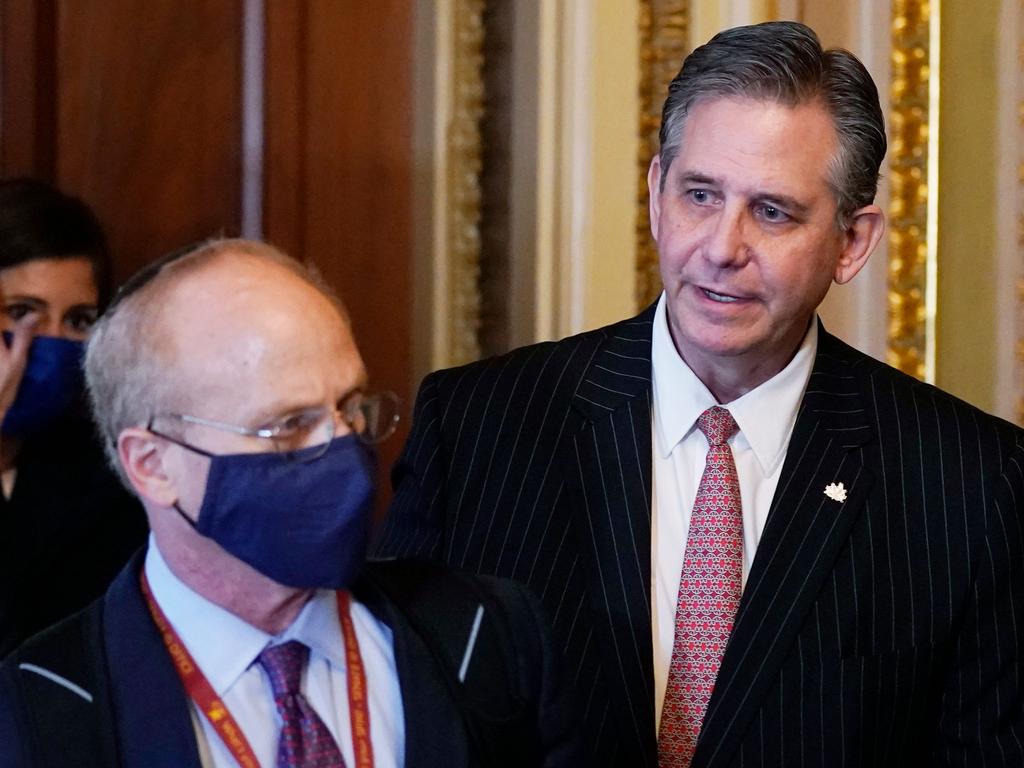
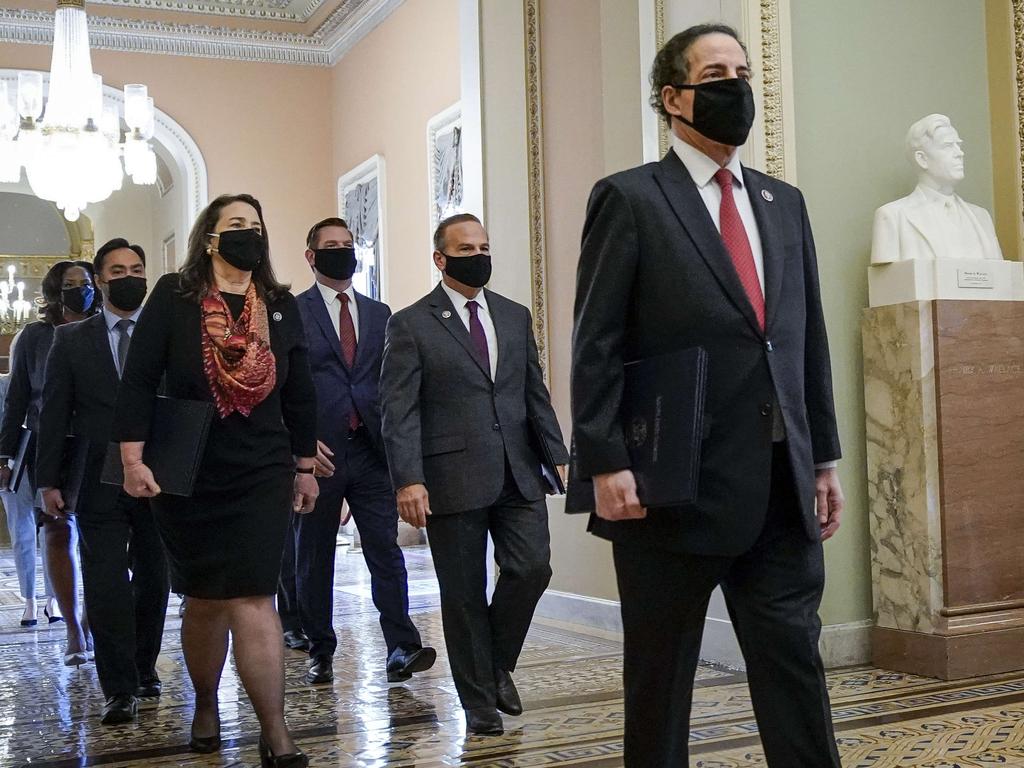
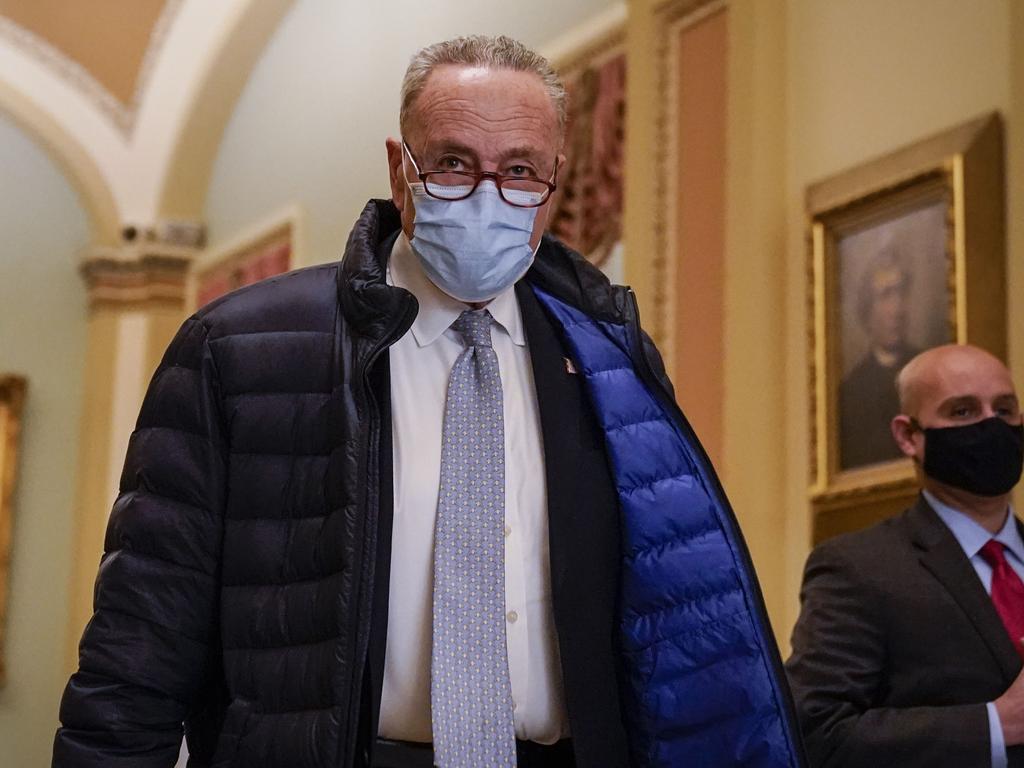
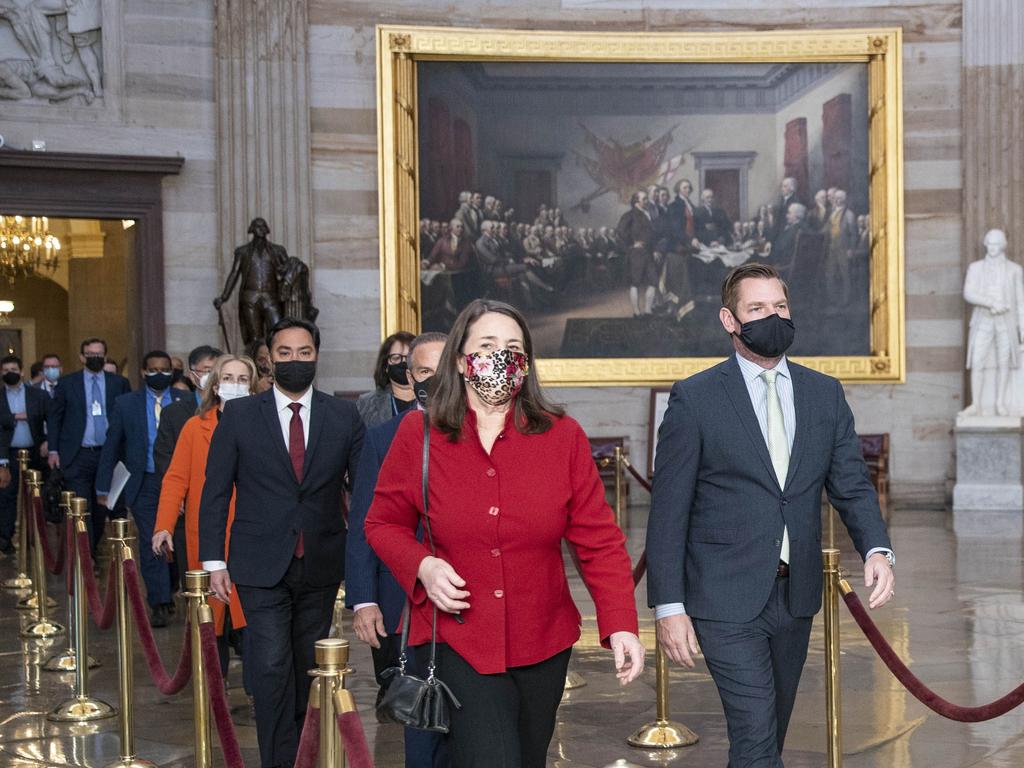


To join the conversation, please log in. Don't have an account? Register
Join the conversation, you are commenting as Logout